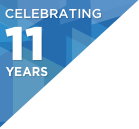Conference: Nov 5-7, 2018
Workshops: Nov 8–9, 2018
Presentation: Failure at Netflix Velocity
Share this on:
What You’ll Learn
- The ins and outs of incident management at global scale.
- How to take these awesome ideas and successfully bring them to your organization.
Abstract
Netflix is a strong believer in Chaos Engineering and the Velocity of Innovation. Most of the time, our customers never notice the former and appreciate the latter. Occasionally however…
Can not connect to Netflix. You press play and it doesn't work. You can't log in. Nothing is on the screen and Stranger Things Season 2 just released!
A behind the scenes look at how Netflix engineering teams think about failure. The tools, techniques, and training we use to shorten the inevitable failures of our systems and impacts to our customers. Come hear why we believe chaos is your friend, failure is guaranteed, and why our organization is better off having both.
Interview
The majority of our time is focused on education, training, and follow up with other teams. We help them with instrumentation, metrics, actionable alerts, and best practices. The focus is really education and preparation.
When things do go wrong, we have a team of trained specialists that help coordinate efforts, manage communication, and keep the people involved on task and pointed toward the goal of stabilizing our service so our customers are happy and pressing their play buttons.
Netflix has learned a lot about how not to plan for and not successfully manage incidents. We like to share those things so others don’t have to learn the hard way about what we’ve found that does work.
Developers, engineers, managers, architects who build critical systems and want to sleep through the night.
The patterns and practices we apply for resiliency, incident management, and sanity.
The little, seemingly, inconsequential things. We found most engineers and organizations do well in the big things -- planning architectures, fork-lifting to new systems, and launching new products; most people wouldn’t dream of launching a new service or making a large code change on a Friday 11PM. However, pushing out a canary to a small portion of production traffic or changing a feature flag on quiet code path feel like no big deal, they’re small things. However, at our size and velocity, even a fraction of one percent of production traffic represents a lot of customers. It’s that numbness to what we perceive as small numbers or small changes that reduced our rigor and impede our ability to correctly reason about those changes. And, those, seemingly small or inconsequential changes that lead to customer or systems impact.
Similar Talks




.
Tracks
-
Architectures You've Always Wondered About
Architectural practices from the world's most well-known properties, featuring startups, massive scale, evolving architectures, and software tools used by nearly all of us.
-
Going Serverless
Learn about the state of Serverless & how to successfully leverage it! Lessons learned in the track hit on security, scalability, IoT, and offer warnings to watch out for.
-
Microservices: Patterns and Practices
Stories of success and failure building modern Microservices, including event sourcing, reactive, decomposition, & more.
-
DevOps: You Build It, You Run It
Pushing DevOps beyond adoption into cultural change. Hear about designing resilience, managing alerting, CI/CD lessons, & security. Features lessons from open source, Linkedin, Netflix, Financial Times, & more.
-
The Art of Chaos Engineering
Failure is going to happen - Are you ready? Chaos engineering is an emerging discipline - What is the state of the art?
-
The Whole Engineer
Success as an engineer is more than writing code. Hear inward looking thoughts on inclusion, attitude, leadership, remote working, and not becoming the brilliant jerk.
-
Evolving Java
Java continues to evolve & change. Track covers Spring 5, async, Kotlin, serverless, the 6-month cadence plans, & AI/ML use cases.
-
Security: Attacking and Defending
Offense and defensive security evolution that application developers should know about including SGX Enclaves, effects of AI, software exploitation techniques, & crowd defense
-
The Practice & Frontiers of AI
Learn about machine learning in practice and on the horizon. Learn about ML at Quora, Uber's Michelangelo, ML workflow with Netflix Meson and topics on Bots, Conversational interfaces, automation, and deployment practices in the space.
-
21st Century Languages
Compile to Native, Microservices, Machine learning... tailor-made languages solving modern challenges, featuring use cases around Go, Rust, C#, and Elm.
-
Modern CS in the Real World
Applied trends in Computer Science that are likely to affect Software Engineers today. Topics include category theory, crypto, CRDT's, logic-based automated reasoning, and more.
-
Stream Processing In The Modern Age
Compelling applications of stream processing using Flink, Beam, Spark, Strymon & recent advances in the field, including Custom Windowing, Stateful Streaming, SQL over Streams.
-
Performance Mythbusting
Real world, applied performance proofs across stacks. Hear performance consideratiosn for .NET, Python, & Java. Learn performance use cases with OpenJ9, Instagram, and Netflix.
-
Tools and Culture: What's Beyond a Stack of Containers?
Containers are not just a techology. It's a platform. Push your knowledge.
-
Web as Platform
All things Browser, from JavaScript Frameworks for animation and AR / VR to Web Assembly and from protocol work to open standards evolution.
-
Beyond Being an Individual Contributor
Beyond being an individual contributor. Building and Evolving managers and tech leadership.
-
Building Great Engineering Cultures
Why engineering culture matters. Track features org scaling, memes as a culture tool, Ally skills, and panels on diversity / inclusion.
-
Hardware Frontiers: Changes Affecting Software Developers Today
Topics around: Quantum computing, NVM, SMR, GPU, custom hardware, self-driving cars, and mobile hardware.









